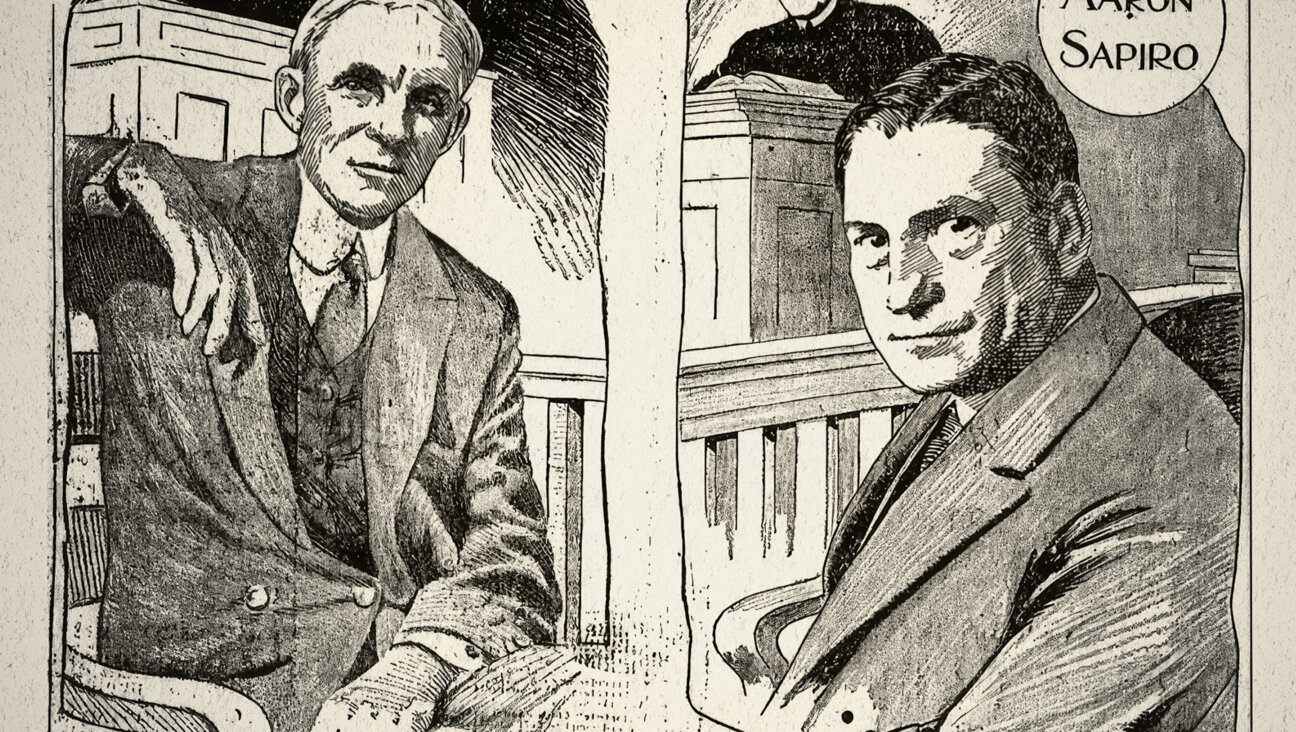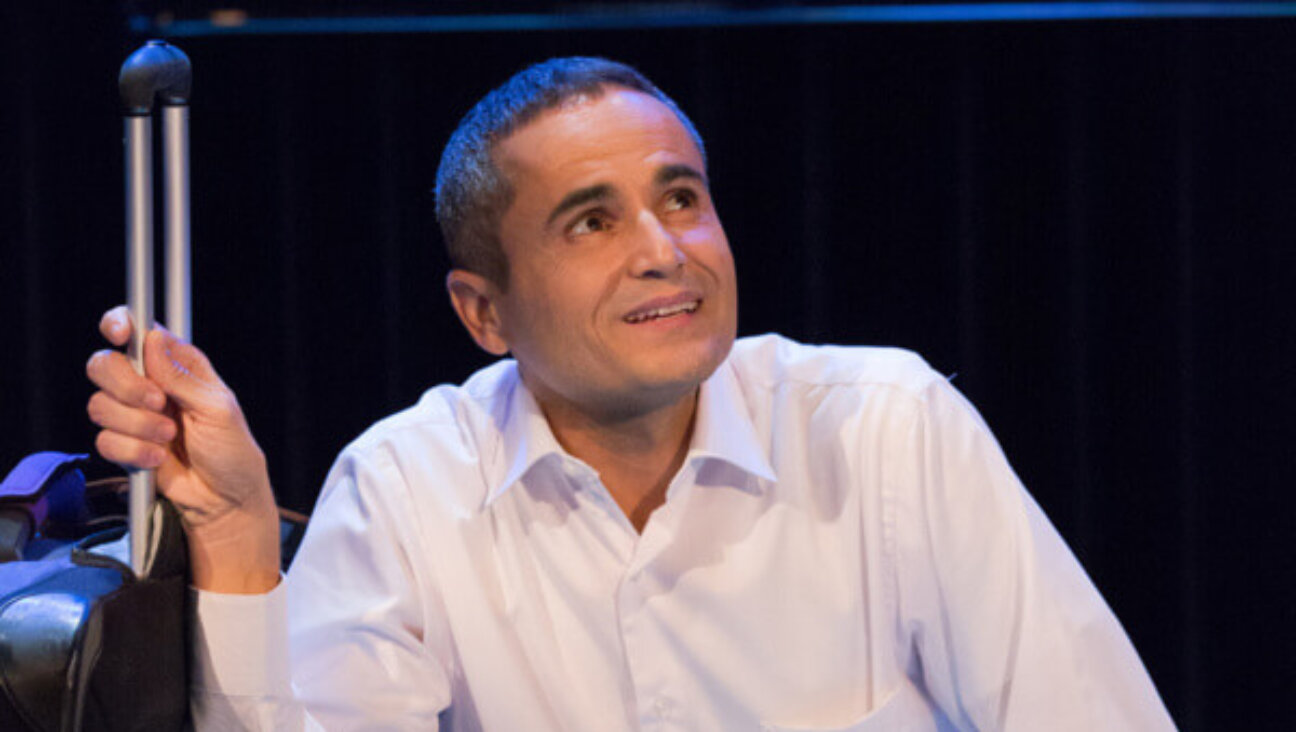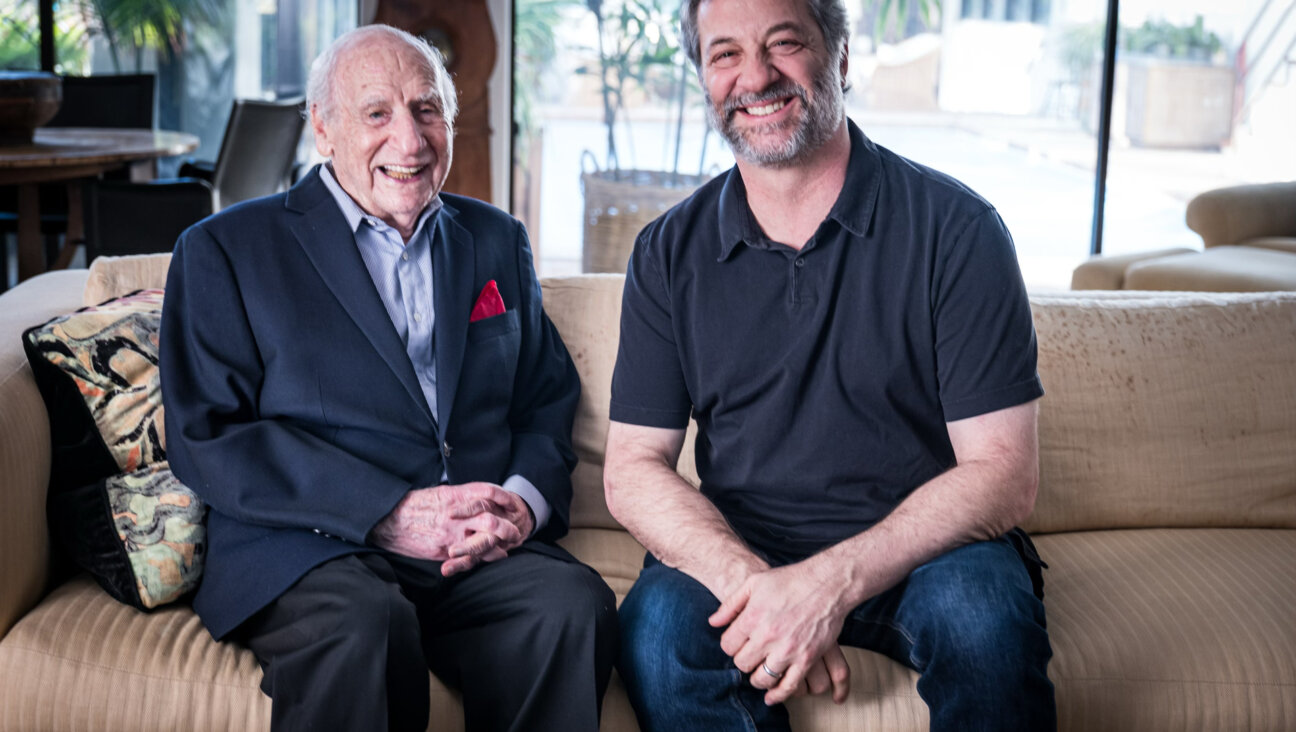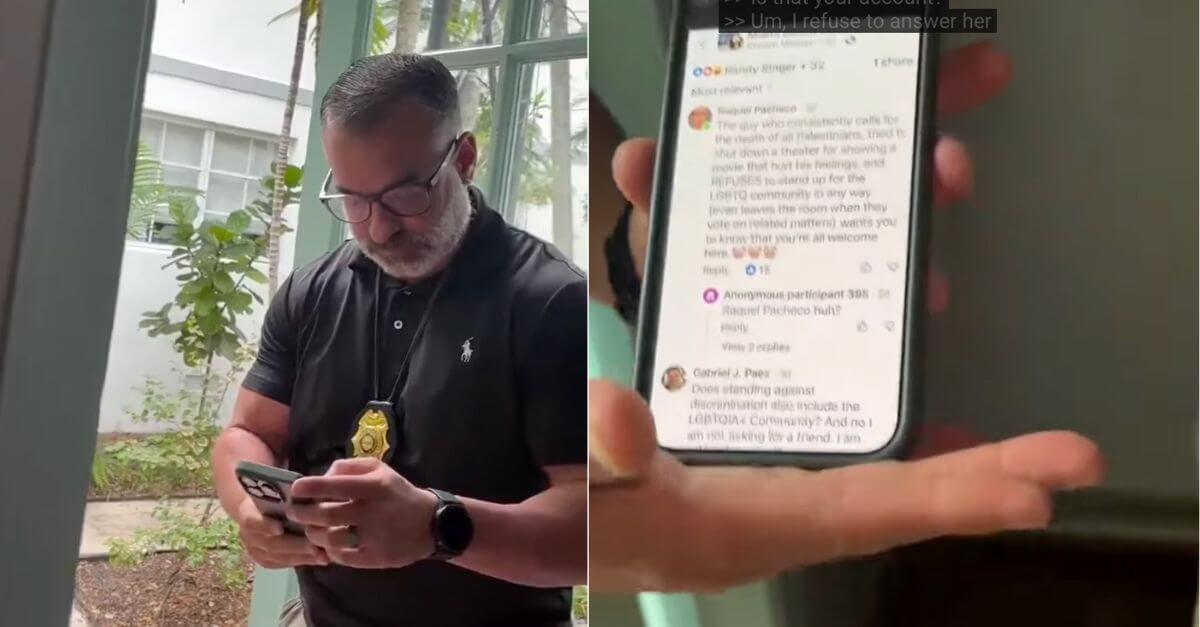Today’s Lesson: The Birds and the Bees
‘A growing number of middle-school students are sexually active,” said Rabbi Eric Yoffie, the president of the Union for Reform Judaism, in his speech at the organization’s biennial General Assembly conference in Houston last November. “The simple truth is this: Our kids are frustrated by the combined failure of their parents and their synagogues to offer them practical help here.”
Yoffie did not mince words, talking explicitly about teenagers’ sexual practices and even explaining the concept of ” ‘hooking up,’ [which] severs sex from any pretense of a relationship.” But if his speech seemed surprising coming from the mouth of a revered rabbi, Yoffie’s intention was not simply to shock. Rather, he chose his language carefully to confront a subject that most religious movements have tended to skirt: pre-adolescent and teenage sexuality.
That bold address in Houston was an introduction to the ideas behind “Sacred Choices: Adolescent Relationships and Sexual Ethics,” a new curriculum designed by the URJ to help Jewish adolescents navigate the rocky terrain of sex, love and dating. Two years in the making, the curriculum is a full-blown attempt by the Reform movement, the largest stream in American Jewry, to provide Jewish teens and preteens with guidance on relationships and sexuality in the context of the Jewish faith.
Next month, the URJ will launch the middle-school component of Sacred Choices; a more “mature” curriculum for high-school students is due out in 2007. The curriculum will be used in congregational schools — supplementary Jewish-education programs — as well as at camps affiliated with the Reform movement.
The idea for developing a curriculum on sex and Jewish ethics grew out of conversations with youth leaders and camp directors who shared stories of preteens’ real-life sexual experiences, said Yoffie. “What I was learning from these discussions was that we didn’t have any in-depth, carefully thought out, well developed educational programs to anticipate these kinds of issues,” he told the Forward. As Yoffie began to talk with kids directly, he found them remarkably up-front. “They were the least shy about talking about it,” he said. And beyond their candor, he said, many of the kids he spoke with were crying out for religious guidance on questions of what is permissible and what is too much, too soon. “These were issues for them; they were struggling, and they really needed some direction,” he said.
Rabbi Laura Novak Winer, the director of the URJ’s Youth Initiative and the project coordinator for Sacred Choices, has spearheaded the program since 2004 at Yoffie’s request. Winer, 39, has collaborated with fellow educators and youth leaders in the URJ to develop the middle-school curriculum, which has already been well received in a pilot program with 23 schools. “What teens are doing is very different from previous generations,” said Winer, who has a 14-year-old son. “It was time to step up to the plate and offer some guidance.” Judy Diamond Greene was recently hired as a consultant to help shape the URJ’s high-school curriculum, because of her lengthy experience teaching Jewish sex ethics to day-school students. For 15 years, Greene has been teaching her own version of Jewish sex ethics at the Conservative movement’s educational institutions, including the Solomon Schechter Day School of Greater Boston in Newton, Mass., and Camp Ramah New England. Still, Greene is, in one sense, a renegade teacher: The Conservative movement has no formal curriculum around sexual subjects. Working with the Reform movement will give her the chance to use her first-hand experiences to create a more coherent curriculum for other educators to use.
The URJ’s middle-school curriculum, which includes five interactive sessions for students and three sessions for parents, focuses on managing relationships: how to establish boundaries, communicate effectively and resist peer pressure. In each session, real-life scenarios are commingled with various Jewish texts, which provide a framework for making personal choices that reflect the tenets of the faith. Drawing on the Talmud, students are asked to apply the lessons of such classic Pirkei Avot tractates as Hillel’s “If I’m not for myself, who will be for me, and if I’m only for myself, what am I?” to personal situations they are facing as sixth-, seventh- and eighth-graders in 21st-century America.
In one imagined scenario that probes issues of peer pressure, a boy named David doesn’t want to ask a girl to a school dance. In fact, he doesn’t want to go at all. His reasons for not wanting to go, however, are unclear. “Does he not want to go to the dance because he wants to stay home and play with his Xbox, or because he doesn’t like girls?” Winer asked. If the kids seem ready to discuss issues of sexual identity, said Winer, this construct allows them to bring it up on their own. “We’re letting it emerge if that’s what their thinking is,” she said. “We have 900-plus congregations, so a congregation in San Francisco is clearly going to approach this in a different way than in Montgomery, Ala.”
In the high-school curriculum, however, sexual-identity questions will be faced head-on. And in keeping with the URJ’s liberal stance on gay and lesbian issues — they were among the first of the religious movements to adopt a pro-gay marriage policy — homosexuality is treated as no less valid an option than heterosexuality.
While Yoffie initiated the curriculum, and was active in its development early on, he has left the content of the program up to URJ staff. There are, though, certain fundamental strictures that he insisted be included in the curriculum. First among them was that high-school students should not be having sexual intercourse. “That’s not something, in my view, you can be fuzzy on,” he said. Still, Yoffie acknowledged that, in a world where kids are having sex at ever-earlier ages, simply to call for abstinence would be a mistake. “There are other ways to give sexuality expression without going all the way,” he said. “If we weren’t up-front about that, we’d be considered irrelevant.”















